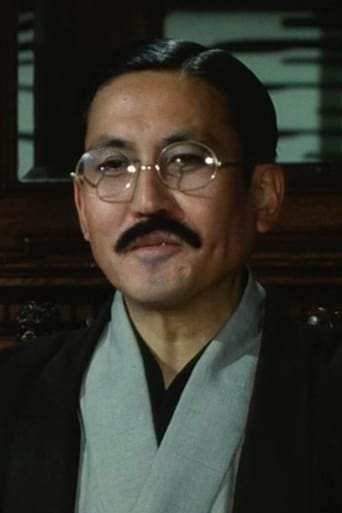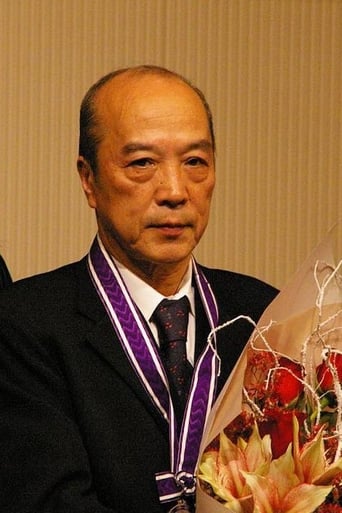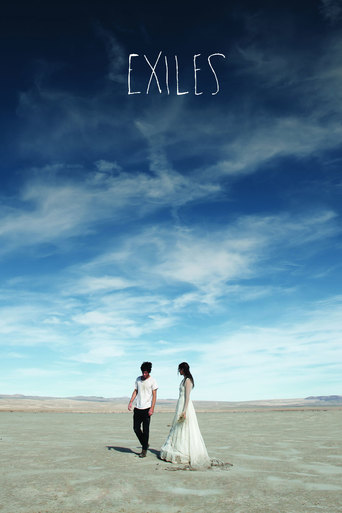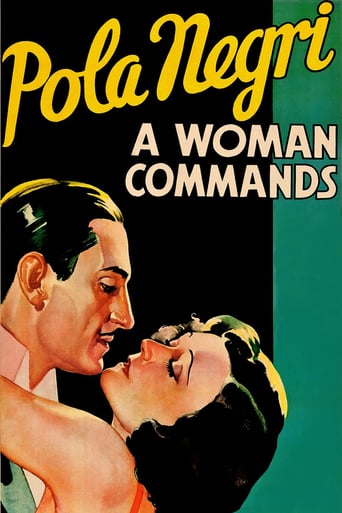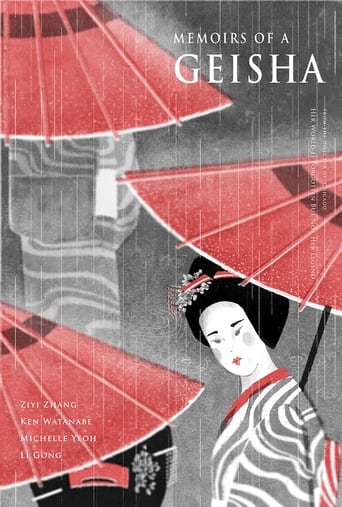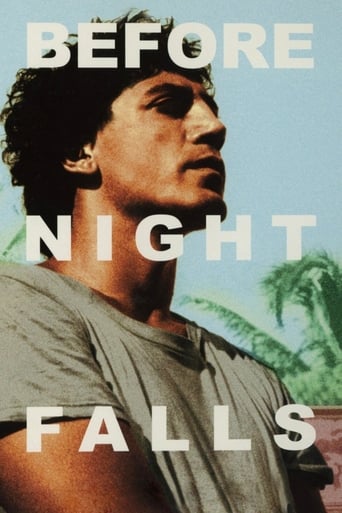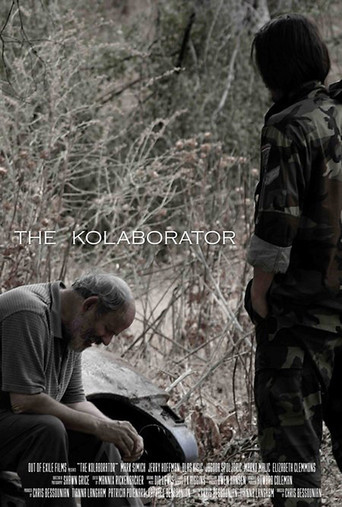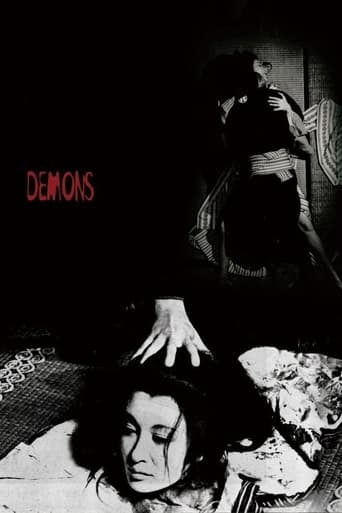
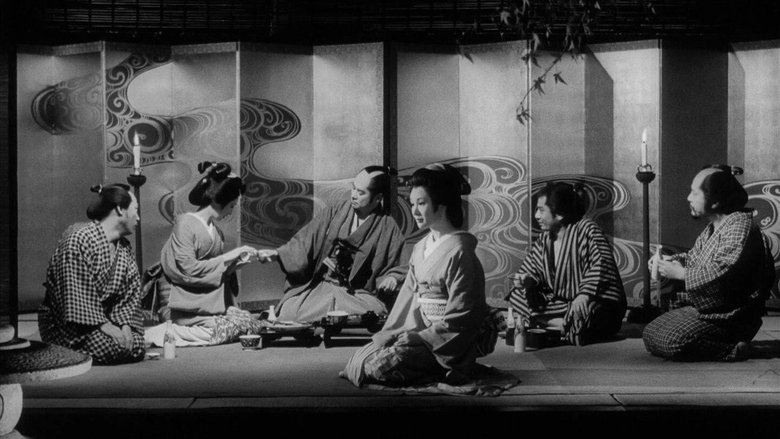
Demons (1971)
Gengobe Satsuma, an exiled samurai cast out as an Asano clan retainer is given a second chance to join his brothers in arms to become the 48th Ronin against the Shogunate. His faithful servant gathers the 100 ryo required for his acceptance. Gengobe is also in love with a greedy geisha named Koman. About to be sold to another man, Gengobe learns that for him to keep her, her debt is exactly 100 ryo.
Watch Trailer
Cast


Similar titles
Reviews
Admirable film.
The story, direction, characters, and writing/dialogue is akin to taking a tranquilizer shot to the neck, but everything else was so well done.
The thing I enjoyed most about the film is the fact that it doesn't shy away from being a super-sized-cliche;
An old-fashioned movie made with new-fashioned finesse.
Entering an exchange project on ICM,my first viewing was the distinctive rustic Comedy Ko to tamo peva. Getting introduced to Asia Cinema via the 2016 IMDb Film Festival board (RIP),I was thrilled to see that other title in the exchange program be an Asia title I've not heard of before!,which led to me unmasking the demons.The plot:Exiled out of his samurai clan, Gengobe starts a passionate love affair with geisha Komon. Given the opportunity to re-join his group, Gengobe receives a reinstatement payment. Being the first payment he has received since the exile,Gengobe is horrified to find that someone has stolen his cash,which leads to Gengobe unleashing his avenging demons.View on the film:Towering above everyone, Katsuo Nakamura gives an extraordinary expressive performance as Gengobe,with Nakamura's high standing and curled arms giving Gengobe a demonic appearance. Set against a stripped backdrop, Nakamura digs into the lack of Gengobe's remorse with a burning fury being cast across his face. Enticing Gengobe, Yasuko Sanjo gives an emotionally raw performance as Komon,whose darting eyes and broken screams haunt the film.Grown out of the stage play Kamikakete Sango Taisetsu,writer/director Toshio Matsumoto and cinematographer Tatsuo Suzuki pulls the horror to its most stark.The bare theatrical black and white backdrops are cut down with the sliver of swords and the spilling of Gengobe's revenge laying the demons across the screen. Staying close to the roots of Tsuruya Nanboku and Shuji Ishizawa's play,the screenplay by Toshio Matsumoto strikes the film with a brittle intimacy, which crackles with an atmosphere of engulfing darkness gripping the exchanges between Gengobe and Komon. Keeping the horror mood bubbling just under Gengobe, Matsumoto makes Gengobe's outbursts ones that sting with suffocating, merciless doom,as Komon sees the faces of Gengobe's demons.
WOW. Rarely does a film leave you this speechless. Toshio Matsumoto's Demons is for sure one of the greatest Japanese New Wave films, and there were so many other masterpieces made during this unofficial film movement that it's really a wonder how still, everyone's associations to Japanese cinema are just the films from the '40s and '50s, with J-Horror and late Kurosawa added in to the mix. Demons is a haunting, ballsy and unforgettable film that will linger long in the memory.Of course, it comes with a fair share of annoying alternative titles - Bloodshed (too generic), Pandemonium (okay, well, I like this one), and Shura: The 48th Ronin (falsely implying that the main character is called Shura). The original title Shura is derived from asura, the Sanskrit name for a demon. In fact, Shura is sometimes regarded as a specific asura, a dark god of destruction, mayhem and violence, who doesn't rest until he spills someone's blood (echoing the mental state of the film's antihero). The word shura is additionally a Noh drama term for a play about ghosts and suffering warriors. So yeah, Demons is the most correct translation.It's based on the play Kamikakete sango taisetsu by Nanboku Tsuruya, who's better known for the often-adapted-to-film kabuki play The Ghost of Yatsuya. Indeed, Demons is a very theatrical film; few locations, all of them indoor and/or artificial, very few characters, shoestring budget, theatrical acting and dialog-driven drama. The movie is full B&W, but begins with a color shot of the sun setting to prepare the audiences for the type of film this is, and the rest of the film takes place in two nights. The dawn never breaks out, the space is extremely confined to make you as claustrophobic and paranoid as possible, not to mention the establishing shots are replaced by title cards. The theatrical style somewhat reminds me of Masahiro Shinoda's Double Suicide, except that one went full-kabuki (or rather bunraku) on us.Demons is a cruel, ironic tale of a samurai descending into madness and turning other characters' lives into Shakesperean lunacy. The film knows exactly what it wants to be - brutal and unforgiving, so much so that it was banned in UK for the depressing tone and violent content. And indeed, one particular scene... Uh. There's no sugarcoating or presenting violence as anything desirable, vengeance as noble, etc. No, this movie has a strong moral sentiment, but you're the one left to decide what the message is.The movie is also an alternate history tie-in with the historical event about the famous 47 ronin, a subject of many Japanese films. Here, the antihero belongs to the same clan (hence the last alternate title) but never interacts with them, nor do the other ones appear. The tale of the 47 ronin's vendetta is as noble and heroic as possible, yet our protagonist plunges into unimaginable depths to further spice the movie's sense of irony. There are no real relatable characters or anyone to root for, but you're still absolutely transfixed to the plot and can't look away. The atmosphere is splendid and the tension is unbelievable. The narrative also likes to trick you sometimes, by adding unsignalled violent fantasies of the antihero which tie in seamlessly with the rest of the story, only for him to suddenly snap out and the actual event to unvelop.Of course I have to mention the cinematography work on this film - it's simply mind-blowingly beautiful like in many, many other Japanese films. The overwhelming use of negative space which makes the characters look like disembodied spirits, the incredible chiaroscuro work - it's all there, and it's as beautiful as it is downright despicable.
The only possible parallel I can furnish to position SHURA in the greater map of Japanese cinema is the last 20 minutes of that soul-destroying masterpiece Kihachi Okamoto directed in 1966, the indomitable SWORD OF DOOM. And even that comparison leaves a little something to be desired. Not only because SHURA is an exhausting 2+ hours of that same brooding sludge so thick you could slice it with a wakizashi, but also because, directed as it is by experimental guerilla rebel Toshio Matsumoto, it stands as a somewhat different beast from the general hobnob of genre cinema.Woven of that same tragic almost Shakespearian fabric, with a protagonist who like Ryunosuke Tsukue in SWORD OF DOOM finds himself doomed to walk the path of demons in a downward spiral into madness and despair, SHURA is as bleak dark and hopeless a jidaigeki as was ever execrated and sealed from man and beast on celluloid. Unlike Ryunosuke Tsukue, however, who starts on the Great Buddha Mountain Pass and slowly cuts his way into his own private hell, Gengobe in SHURA starts in that private hell and plunges himself deeper in depths of the soul unknown. The movie opens with Gengobe hunted in pitch black by hovering lanterns held by unseen persecutors. He enters a house and finds a scene of carnage and mayhem, the floor strewn with mutilated bodies, limbs, others hanging dead from the ceiling. I told you it only starts there.The movie itself exists in a hopeless purgatory. No establishing shots of anything. No daytime. The passage of time signaled with intertitles. The occasional external shot, a patch of gravel road, the frontside of a house, offers no relief, no room for breath, because it reminds us that there are no horizons or depth for the eye to rest. Everything was probably shot on soundstages with only a few lights strategically placed hither and thither, no doubt a lingering remnant of kabuki theater from which Japanese cinema has borrowed heavily. With no broader world to be measured against, the interiors and the story that takes place inside and the characters that breathe and walk and double-cross and slaughter each other in them, all seem to hover suspended in absolute suffocating darkness and everlasting night.The title really says it all. The Ashuras, a rank of lower demigods in Buddhism, are meant to reflect the mental state of a human being obsessed with force and violence, always looking for an excuse to get into a fight, angry with everyone and unable to maintain calm or solve problems peacefully.It's not only cynic or tragic as the best of jidaigekis usually are, it's positively bleak and unremitting. That shots and entire scenes repeat themselves automaton-like, first taking place inside the protagonist's anguished mind and then reality, only serves to reinforce the existential phlegm through which SHURA wades waist-deep for two hours. The atmosphere is so oppressing that questions of clunky expositional dialogue such as the characters often spout ("this is your wife's head" says a character while brandishing said head in plain sight) and theatrical exaggerated acting are rendered almost meaningless.The story is still good, gripping, engrossing, as classic and plain and stripped of all fat as the best jidaigekis usually are, with a limited cast and sets that hint at the stageplay origins of the script, but in the end it's the overarching feeling of despair that stays with you. A movie so much of its time and place, almost impossible to even think of it as coming from anywhere else than Japan of the late 60's-early 70's, that will by its very nature appeal only to a limited audience. If you came this far and liked what you read then you're probably ready to brave SHURA. Beware all who enter. There is real cacodemonia here.
A stark, desperate tale of vengeance, Shura examines the plight of Gengobe - a Ronin (Samurai without Master) - and his quest to right the wrongs done unto him. This is basically the whole plot in a nutshell, but this isn't any kind of action adventure story or pulp fiction Samurai epic, rather a philosophical and meditative examination of manipulation and a misguided affection which blinds a man from his duty and true quest. True this is a staple of Japanese cinema - but it is one which has rarely been examined quite this painfully and as unflinchingly as it is in this film.The theatrical origins of Matsumoto's film are very evident from the onset of this bleak piece, an extremely minimalist affair, but this only adds to the feeling of entrapment and claustrophobia. Daylight is glimpsed only once (the first shot as the sun sinks from the blood-red sky - also the only shot in colour) and the story plays out over the course of several nights. As with his previous film 'Funeral Parade of Roses' Matsumoto employs many times a 'dual reality' device replaying scenes first as the protagonist imagines, and then as it actually happens, constantly keeping the viewer unsettled, with shocking - though never gratuitous - spurts of violence which one is torn between finding sympathy with and being repulsed by.This is a film which is easier to admire than to actually like, but it's forlorn, doomed and - literally - lightless vision means it could only be truthfully recommended to those who are fans of truly downbeat cinema. A viciously dark night of the Soul.9/10. 1 point deducted for not showing even the slightest glimmer of hope.


